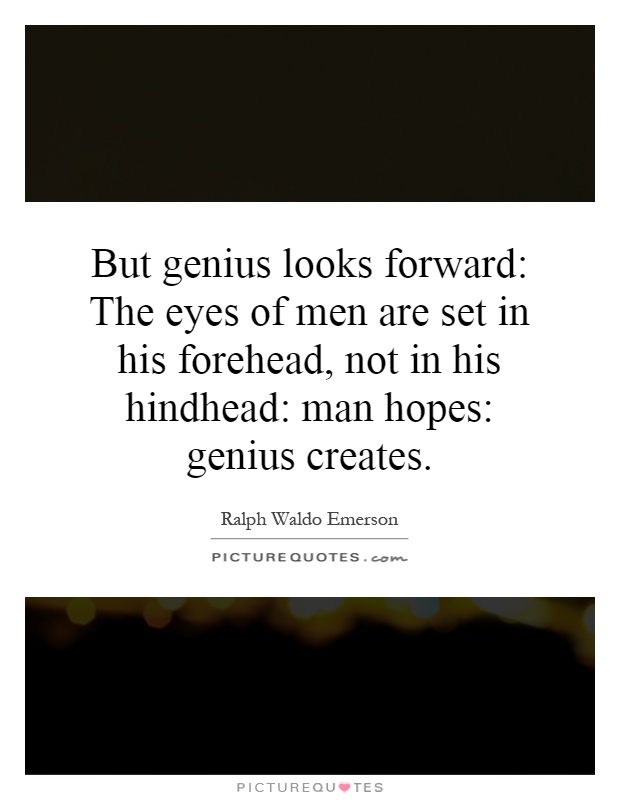But genius looks forward: The eyes of men are set in his forehead, not in his hindhead: man hopes: genius creates

But genius looks forward: The eyes of men are set in his forehead, not in his hindhead: man hopes: genius creates
Ralph Waldo Emerson, a prominent American essayist, lecturer, and poet, was a firm believer in the power of genius and creativity. In his essay "Self-Reliance," Emerson famously wrote, "But genius looks forward: The eyes of men are set in his forehead, not in his hindhead: man hopes: genius creates." This quote encapsulates Emerson's belief that true genius is marked by a forward-thinking mindset and the ability to create something new and innovative.Emerson believed that ordinary men are content to live in the present and hope for a better future, while geniuses are constantly looking ahead and striving to create something that has never been seen before. The eyes of men, according to Emerson, are set in their foreheads, indicating that they are focused on the present and the past. In contrast, the eyes of genius are set in their foreheads, symbolizing their ability to see beyond the constraints of time and tradition.
For Emerson, hope was a passive emotion that relied on external circumstances to bring about change. Genius, on the other hand, was an active force that could shape the future through creativity and innovation. While ordinary men may hope for a better future, geniuses have the power to create that future through their unique vision and talent.
Emerson's emphasis on the importance of creativity and forward-thinking is evident in his own work as a writer and thinker. His essays and lectures were filled with original ideas and insights that challenged conventional wisdom and inspired generations of readers. Emerson's belief in the power of genius to shape the course of history continues to resonate today, as we look to innovative thinkers and creators to solve the complex challenges of our time.












 Friendship Quotes
Friendship Quotes Love Quotes
Love Quotes Life Quotes
Life Quotes Funny Quotes
Funny Quotes Motivational Quotes
Motivational Quotes Inspirational Quotes
Inspirational Quotes